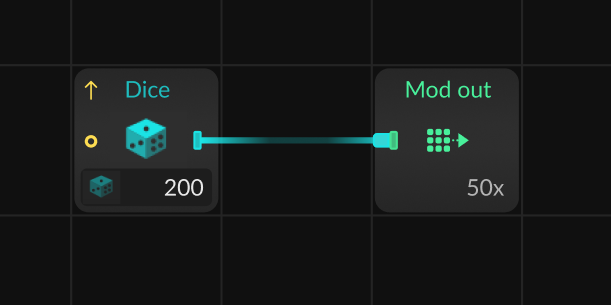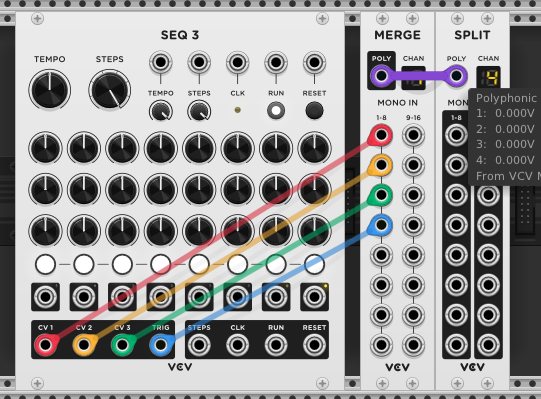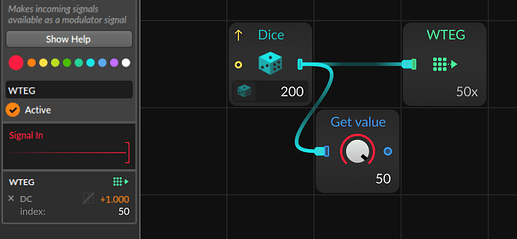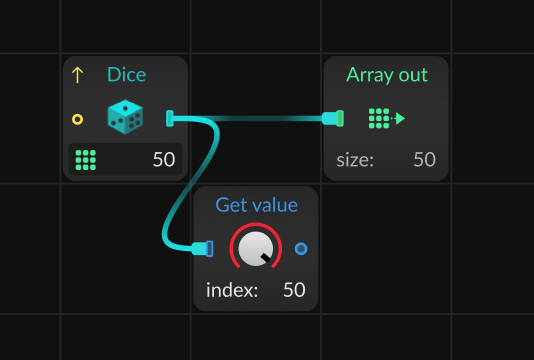Introduction to new type of signal flow and new type of modulator that would allow generating array of values (modulators) instead of one at a time even if you’re using non-polyphonic device. It needs new UI elements for this kind of modulators, so you could select specific index for modulation mapping, etc.
Use cases are vast, but one simple example is Random modulator. If you could set it to array of desired size, it would generate as many random values as you need from same settings or distribution of settings, and then you could apply different random values on different parameters, all using just one modulator as source, which would significantly reduce needless clutter. Furthermore, using second Array-type modulator with matching array size you could apply modulation to parameters of Random for each index accordingly, in a way similar to the way you can apply Voice Stack spread or specific distribution, only without having to stack the whole device. There are also countless of ways Array signal could be used in Grid.
↑ A mockup of how it could look/work like in Grid. Extra touch: Dice with optional seed number (since we can do this with clips now)
What problem(s) would this feature resolve?
Reduce clutter by reducing the need to have to spam many instances of same modulator or module. Also it would expand abilities with simplification of patches that otherwise grow in complexity with lots of unnecessary wiring and UI elements. Arrays as concept are common in other modular environments for this reason too.
Beside that, since modulators in Bitwig are audio-rate, this would add ability to process and route multiple parallel audio signals, not just stereo, all with one ‘cable’.
How does this feature fit in Bitwig as a product?
Expands on the possibilities of The Grid, which is a unique aspect of Bitwig.
Is there already an alternative way to achieve this on Bitwig?
No
Could it be implemented using Bitwig components or APIs, without Bitwig team’s support?
No
Could it be provided by a VST or something else reasonably integrated with Bitwig?
No
Are there other products that offer this feature?
PureData, Max/MSP, Reaktor, Usine, and modular environments in general all have Arrays as concept. VCV now has array type cables as well (they’re called polyphonic here):



